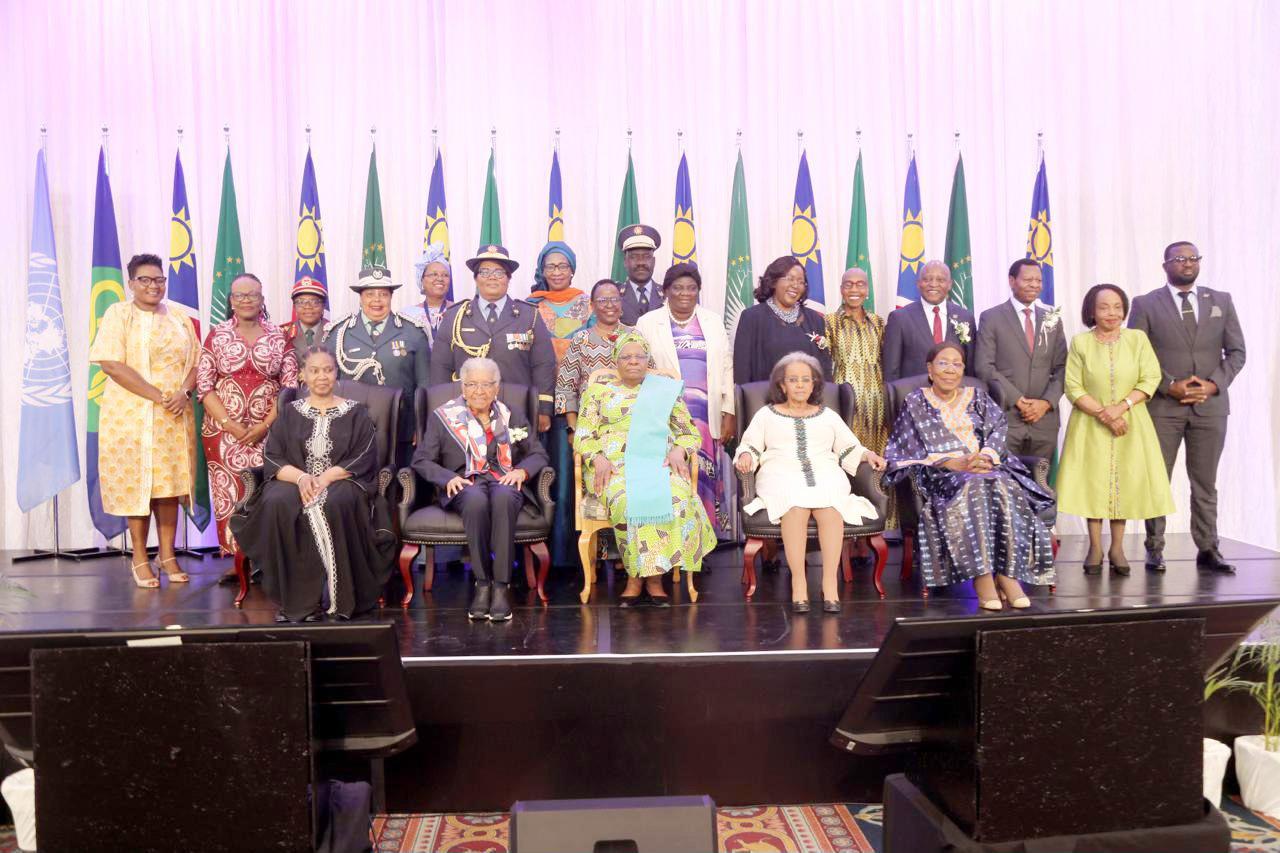Africa-Press – Namibia. Top African women political leaders said real progress in advancing women will only happen when political will is matched with action, resources, and preparation of future generations.
This was the view of various women political leaders from across the African continent during the just ended Women, Peace and Security (WPS) high-level event in Windhoek last week.
The panel, themed “From Legacy to Legacy: African Leadership and the Future of WPS,” brought together President Netumbo Nandi-Ndaitwah of Namibia and former heads of state Ellen Johnson Sirleaf of Liberia, Sahle-Work Zewde of Ethiopia, and Catherine Samba-Panza of the Central African Republic.
They reflected on their personal journeys, the progress made since the adoption of UN Security Council Resolution 1325, and the unfinished business of women’s inclusion in peace and security.
While they celebrated the growth in women’s leadership across the continent, they warned that simply having policies and declarations is no longer enough.
“Political will is not a speech, but it must be backed by resources, concrete action and results,” President Nandi-Ndaitwah said.
She emphasised that true political will involves allocating budgets, building institutional capacity and holding leaders accountable to implement change.
She pointed to continental commitments such as the African Union’s pledge that at least 15% of Africa’s natural resources should not leave the continent unprocessed.
“That is a political statement. But if we do not empower Africans with skills and resources to add value, then it is not political will. Political will must produce results,” she said.
The Nandi-Ndaitwah warned that many countries have national action plans on women, peace and security, yet implementation continues to lag.
“We cannot talk about women mediators and negotiators if we are not empowering them with the necessary capacity,” she said.
Namibia, she added, is taking practical steps by establishing the International Women’s Peace Centre to train women for peacebuilding roles, provide resources and link with global institutions.
The centre will even support the families of peacekeepers to appreciate the role they play in global stability.
Former Liberian president Ellen Johnson Sirleaf, Africa’s first elected female head of state, said leadership is only meaningful when it prepares others to take over.
“Legacy is not about one person’s success. It is about passing the baton and making sure young people are ready. Those of us who have been favoured with leadership have a responsibility to prepare them,” she said.
Sirleaf said her experience rebuilding Liberia after civil war taught her that young people must be at the centre of post-conflict recovery.
She also stressed teamwork, listening, and humility in leadership. “Do not think you know it all,” she said. “Listen to others. Learn from others. Teach others. That is teamwork,” she added.
The former president added that women leaders must create the space for others to shine.
“Leadership means giving opportunity to young people so that they are ready for success,” she said. “Women must be the major drivers of change in our countries,” she remarked.
Former Ethiopian president Sahle-Work Zewde spoke about the importance of confidence and authority in leadership. She recalled how Tanzania’s President Samia Suluhu Hassan, after becoming the first woman to lead her country, declared: “I am the President of the United Republic of Tanzania—who happens to be a woman,” Zewde said
Central African Republic’s former president Catherine Samba-Panza, who led her country through a fragile transition, said the barriers women face in leadership are not glass ceilings but “wooden ceilings.”
She said women often lead in times of crisis but are expected to fix problems without the tools or support.
Despite these challenges, all former presidents said that women have consistently proven that they can lead peace processes with integrity, empathy and toughness. They noted that communities themselves now demand female peacekeepers and negotiators because of the unique value they bring.
President Nandi-Ndaitwah agreed, noting that when Namibia was asked to deploy a 100% female contingent to the UN mission in Darfur, the community requested it specifically because women listened differently and built trust.
“Women hear with a different ear,” she said. “They bring new insights and practical solutions to the table,” she added.
She added that when women are emotionally affected during negotiations, it should not be seen as weakness.
“If a woman cries, you must listen,” she said. “That emotion is showing you the depth of the problem—and that is how you find solutions,” she added.
Her own leadership, she said, was shaped by growing up under oppression in northern Namibia. Witnessing inequality and injustice gave her resilience and purpose. She learned patience from her father and courage from her mother.
“If something happens and you cannot change it, do not let it hold you back,” her mother told her. “Find a way out,” she added.
She further revealed that many of her former deputies are now ministers because she believed in mentoring and empowering them.
“Never limit those around you out of fear they might take over,” she said. “If you think like that, you will not succeed,” she added.
Reflecting on 25 years since Resolution 1325 and 35 years of Namibian independence, she said Africa has already laid the foundation to lead the global peace and security agenda.
The African Union’s Peace and Security Council is among the strongest on the continent.
For More News And Analysis About Namibia Follow Africa-Press






